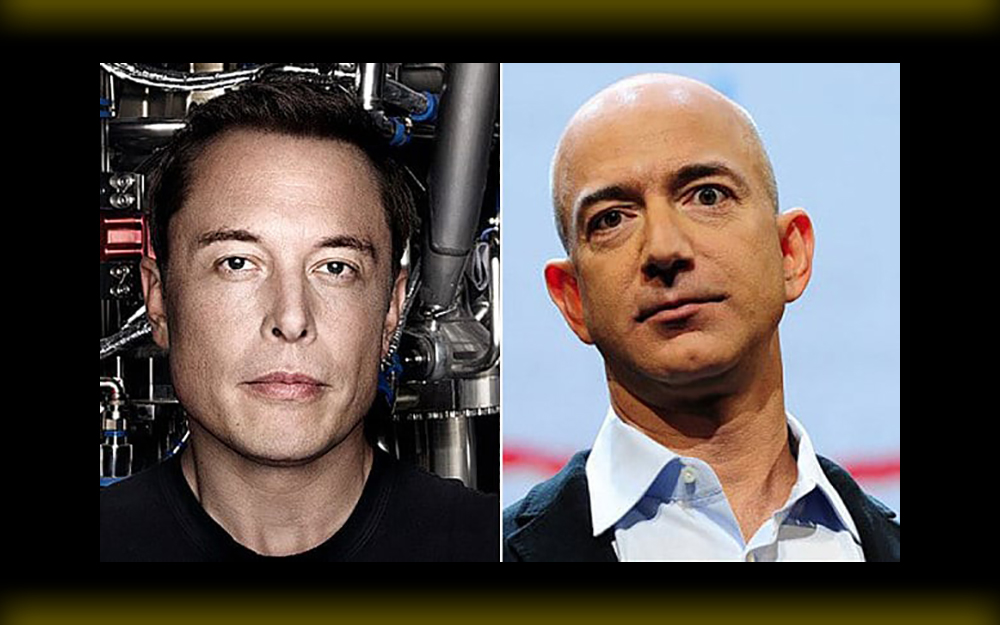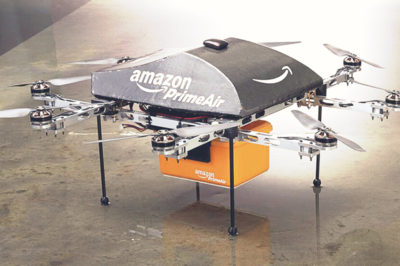
By Haddon Libby
Disruptors are those who use innovation to create revolutionary new ways of serving you and me by disrupting the status quo. A simple example can be found in the way you hire a car to drive you somewhere. Once upon a time, we only had expensive taxis and even more expensive limo services if we needed a ride. With the success of Uber and Lyft, we now have lower costs, better choices and a typically shorter wait for service. Additionally, anyone can make extra income by driving people around.
 Many consider Elon Musk to be the poster child of disruptors although I believe that Jeff Bezos is our Disruptor-In-Chief. Despite being only 46 years old, Musk has done more than his fair share of disrupting. After being part of the team that created PayPal, Musk went on to create the luxury electric car Tesla as well as the solar power company SolarCity. Add to that SpaceX for the exploration of space and colonization of Mars, The Boring Company to dig holes underground for moving people in cars from New York City to Washington DC and Hyperloop, a company that intends on shuttling people underground around California similar to the way that the bank tubes move money between the car and the bank teller at drive-in teller windows. While many view Musk as a very sophisticated con man, there is no doubt that his visionary work has motivated many entrepreneurs and businesses to put more effort into disruptive innovation.
Many consider Elon Musk to be the poster child of disruptors although I believe that Jeff Bezos is our Disruptor-In-Chief. Despite being only 46 years old, Musk has done more than his fair share of disrupting. After being part of the team that created PayPal, Musk went on to create the luxury electric car Tesla as well as the solar power company SolarCity. Add to that SpaceX for the exploration of space and colonization of Mars, The Boring Company to dig holes underground for moving people in cars from New York City to Washington DC and Hyperloop, a company that intends on shuttling people underground around California similar to the way that the bank tubes move money between the car and the bank teller at drive-in teller windows. While many view Musk as a very sophisticated con man, there is no doubt that his visionary work has motivated many entrepreneurs and businesses to put more effort into disruptive innovation.
Disruption is evident in the way people watch television. After decades as some of the most disliked businesses in America, cable and satellite companies are seeing subscribers cut their cords in record numbers. People are using over-the-top offerings delivered via smart televisions, computers, smartphones and devices like Apple TV and Amazon’s FireStick at a fraction of the cost.
As over-the-top programming usually requires an internet connection, many companies are looking to further disrupt the cable companies that are the primary providers of Internet services across America. Google is currently testing hot air balloons from which they would provide WiFi to large areas while FaceBook would like to offer free Internet via satellites orbiting Earth.
Jeff Bezos’ Amazon has disrupted more businesses than any other company. From its humble beginnings as an online book seller, Amazon is now the fifth largest retailer in the United States and a behemoth in the Web Services sector. Following the purchase of Whole Foods, Amazon is preparing to disrupt the grocery business and is rumored to be preparing for a similar foray into prescription drug delivery services. Due to all of this business activity and few physical locations, Amazon is also causing companies like FedEx and UPS heartburn as Amazon looks to reduce their delivery costs while expediting their delivery times by launching their own delivery services which may include the use of drones in large cities.
While technology is usually part of disruption, one need look no further than the cannabis industry to see how increased marijuana usage has been viewed as a serious threat by alcohol businesses. In order to deal with changing consumer trends, alcohol behemoth Constellation Brands paid $191 million for Canada’s leading cannabis company, Canopy Growth Corp. Will this mean that we will soon see Cannabis Wine at BevMo or edible cannabis brownies at 7-11? The purchase of Canopy by Constellation shows how they understand both the threat and the opportunity that cannabis presents to their business model.
You can be a disruptor too. Simply approach your work and life in ways that people are likely to copy. While your disruption may not be as Earth-changing as a driverless car, just imagine how different the world would be if everyone behaved in ways that others would want to emulate.
Haddon Libby is the Managing Partner and founder of Winslow Drake Investment Management. If you want a free review of your investment portfolio, call him at 760.449.6349 or email HLibby@WinslowDrake.com.










































